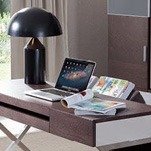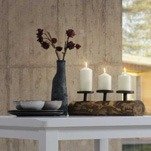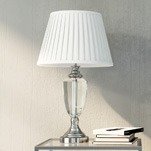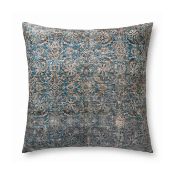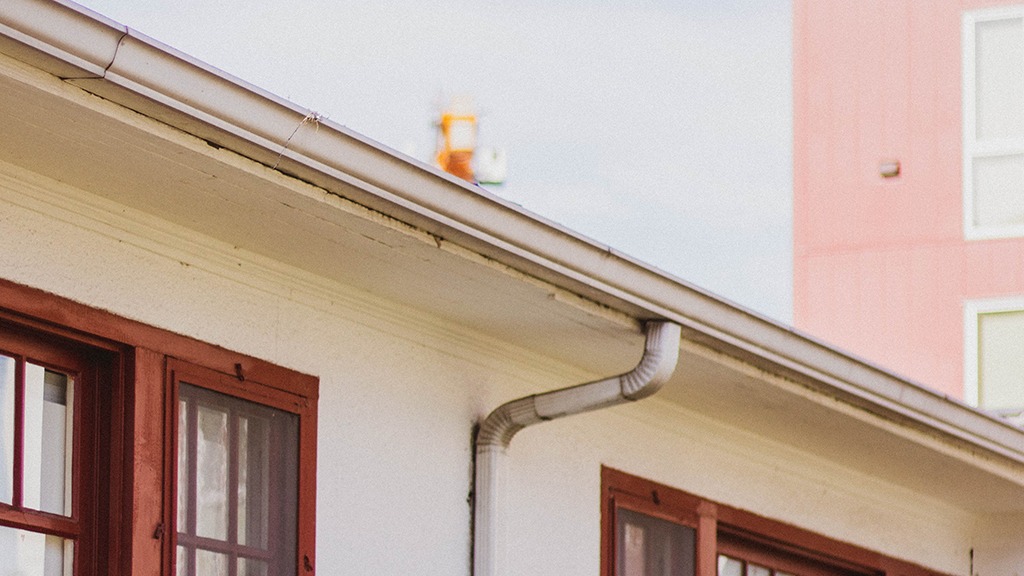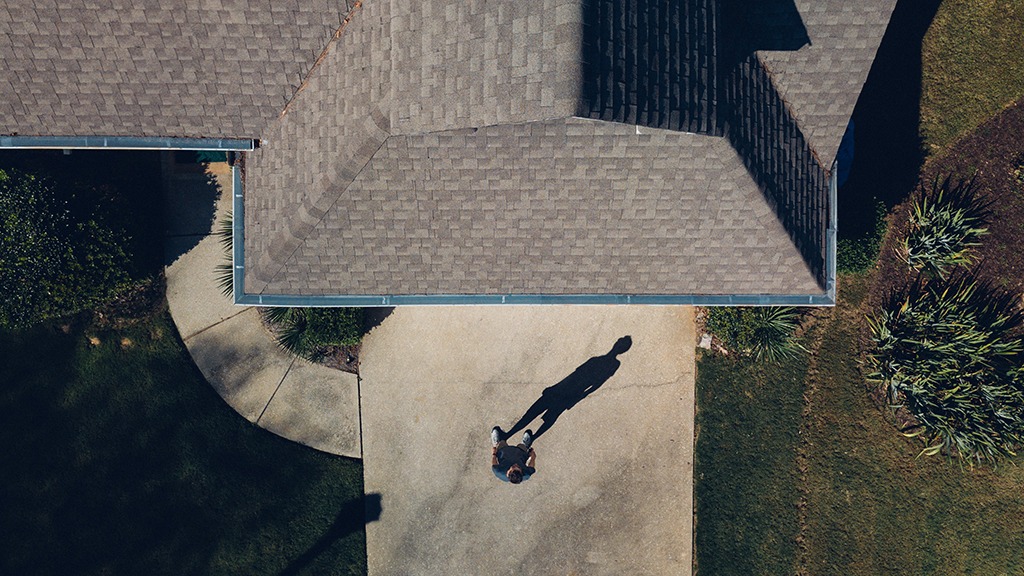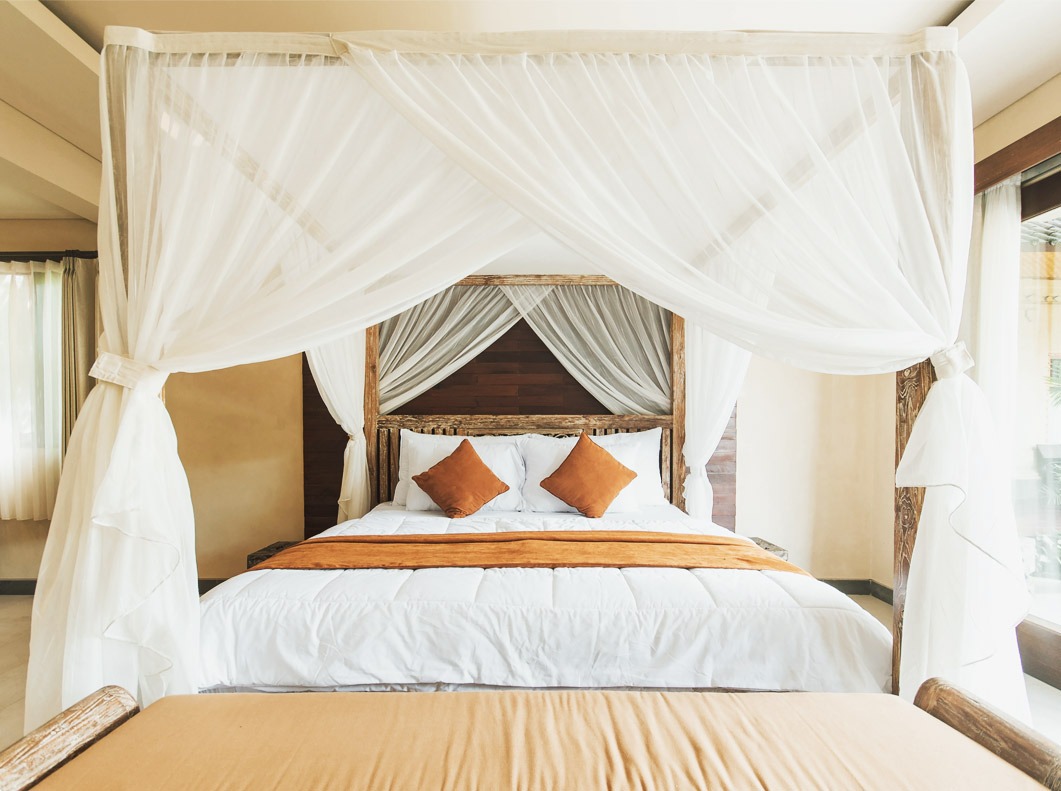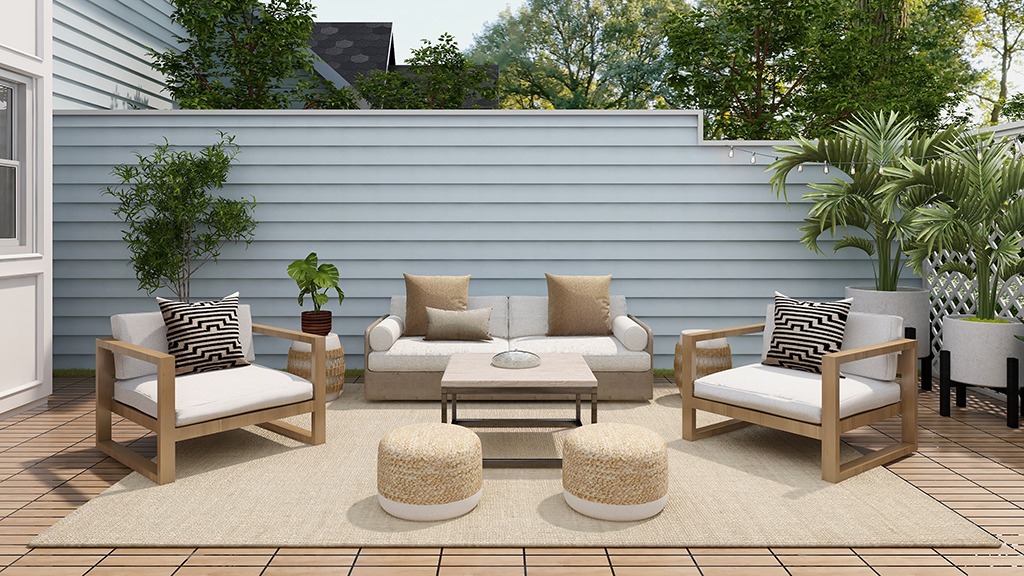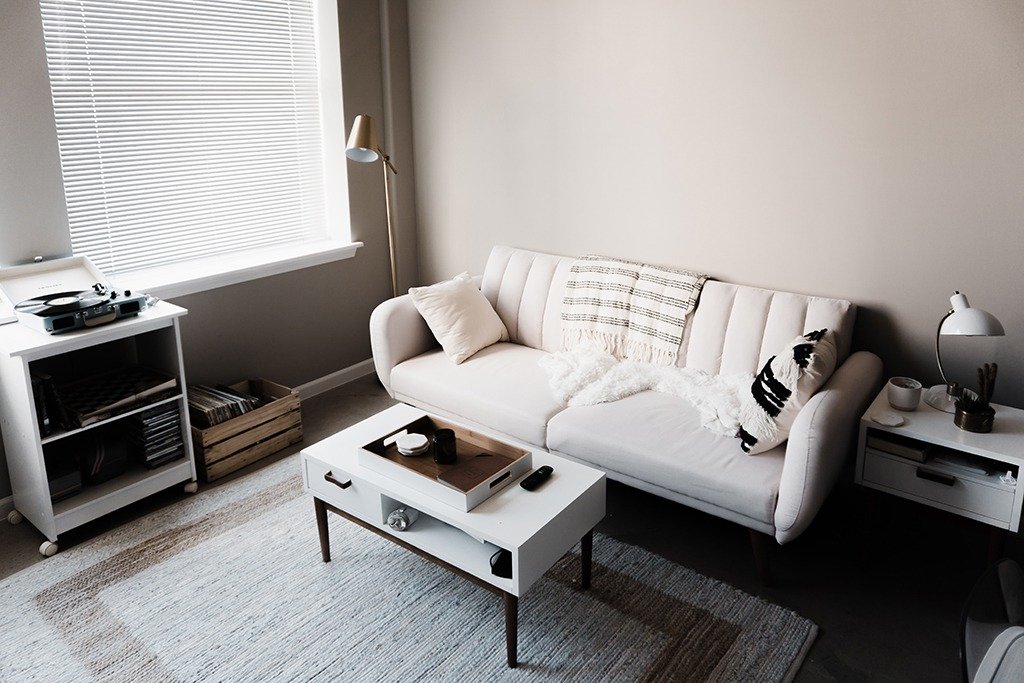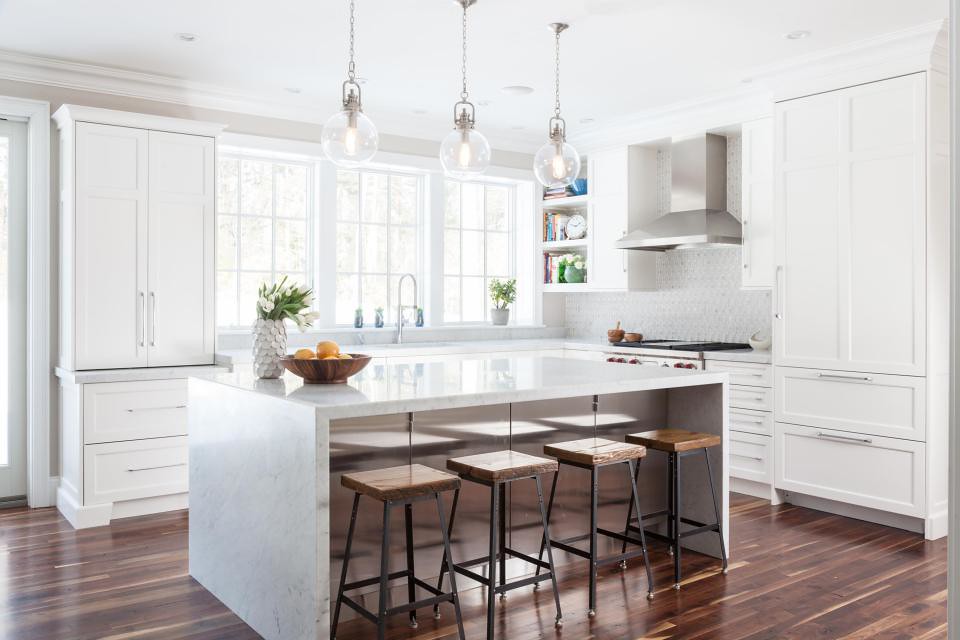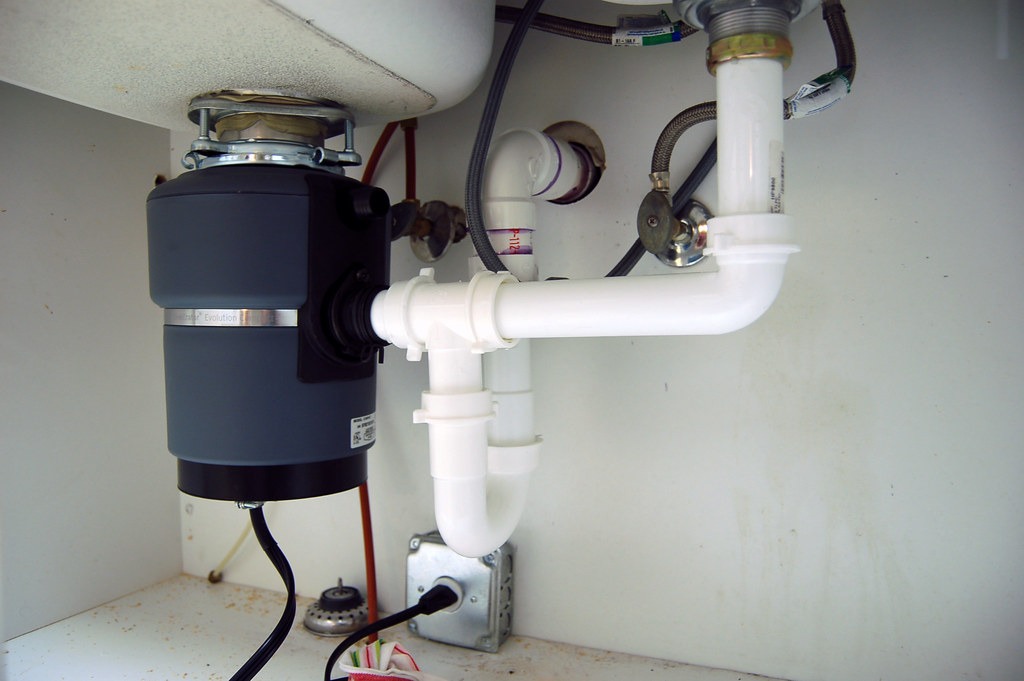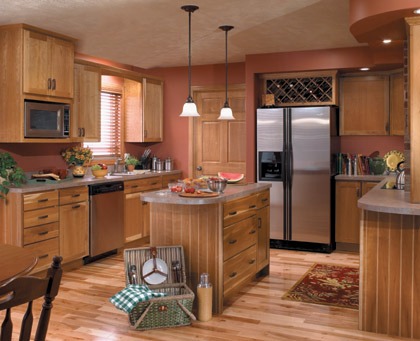When looking at bathroom flooring options, there are a few things to consider such as durability, functionality, cost and beauty. At the same time, not every material is good for the shower area of a bathroom. Due to excess water, the shower needs a vitreous material which doesn’t absorb too much water and damage the substrate below.
Here are the five best flooring options for the bathroom.
1. Tile Flooring
Tile floors are a classic choice for the bathroom. There are several options to choose from when it comes to tile and although each material is different, they have similar advantages that apply to tile in general. Tile is clean-looking, durable, water-resistant, and requires little effort to maintain. On the downside, tile floors may contribute to slip-and-fall accidents. To avoid accidents, make sure whatever tile you choose is moisture-proof and uses a nonslip material.
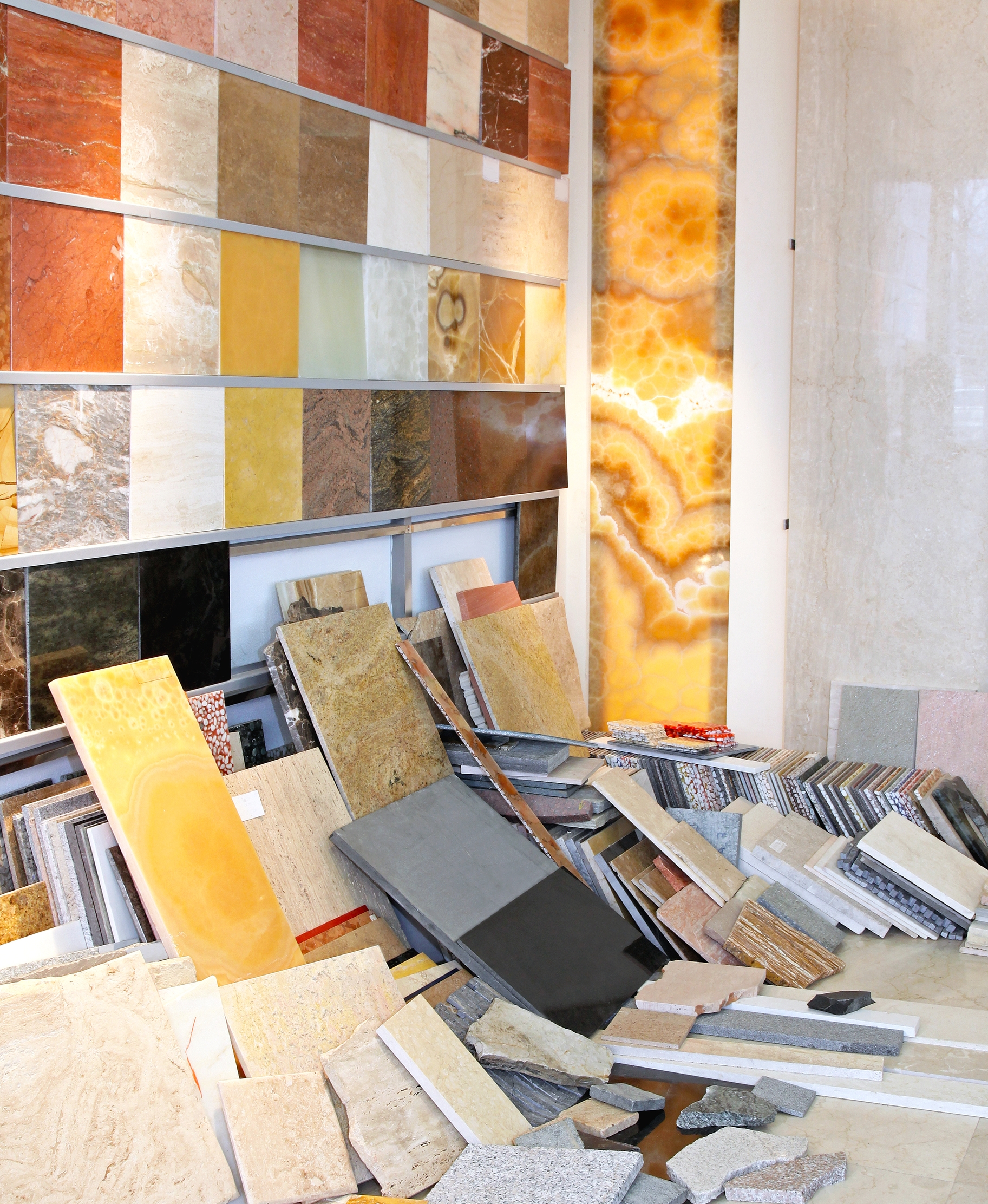
Photo by Marko Beric on Alamy
Types of Bathroom Tile Flooring:
• Ceramic or Porcelain Tile
Ceramic tile is made from clay and mineral that has been forced into shape and heated at high temperatures. Glazed ceramic is appropriate for bathrooms and comes in various shapes, colors, and sizes. Porcelain is a type of ceramic tile with a lower water absorption rate.
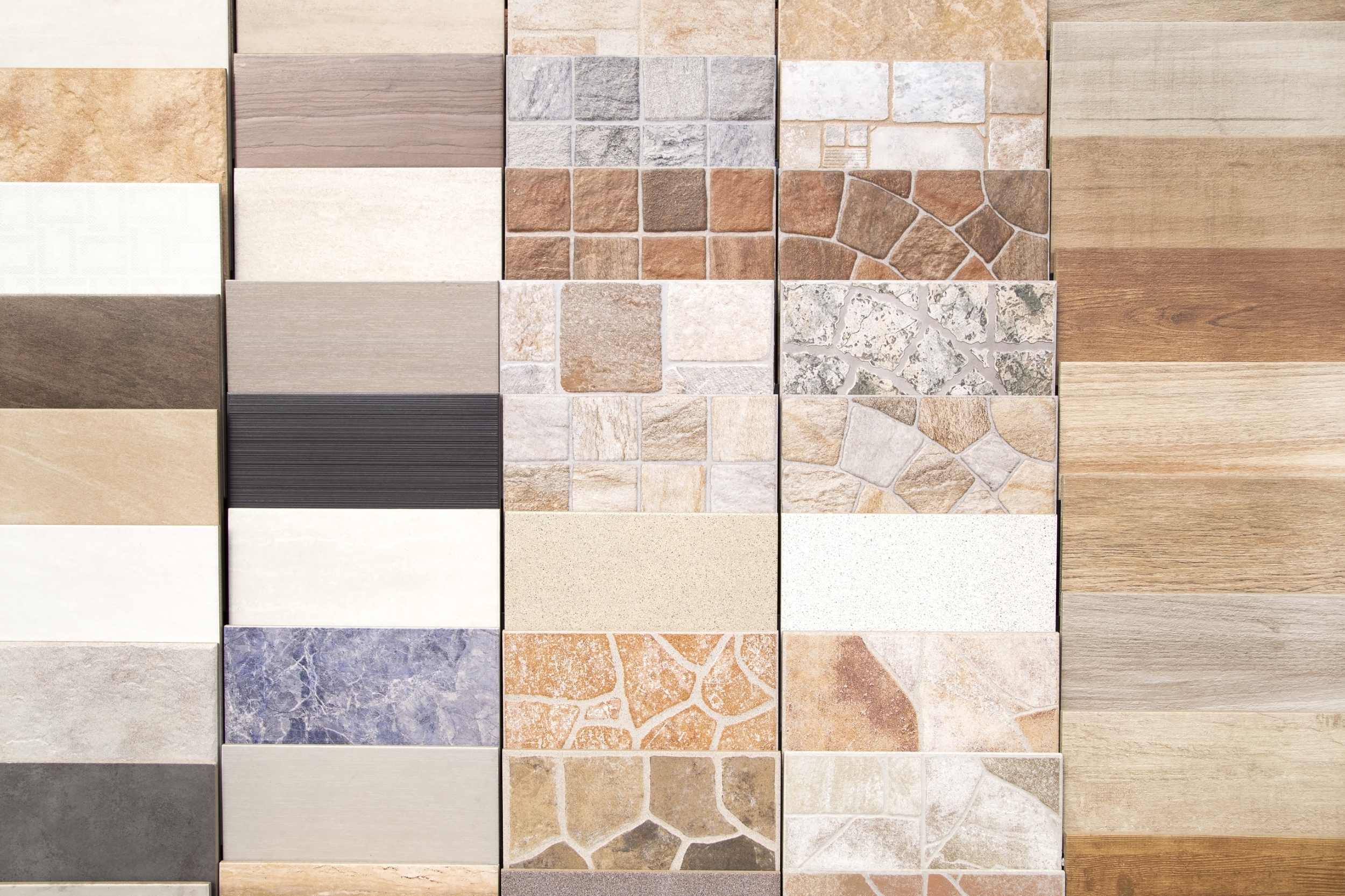
Photo by Studio Doros on Alamy
Pros
- Easy to maintain
- Offers a lot of room for creative design because of the variety of textures, patterns, color, and sizes
- Does not scratch or wear easily
- Affordable
- Great for the shower
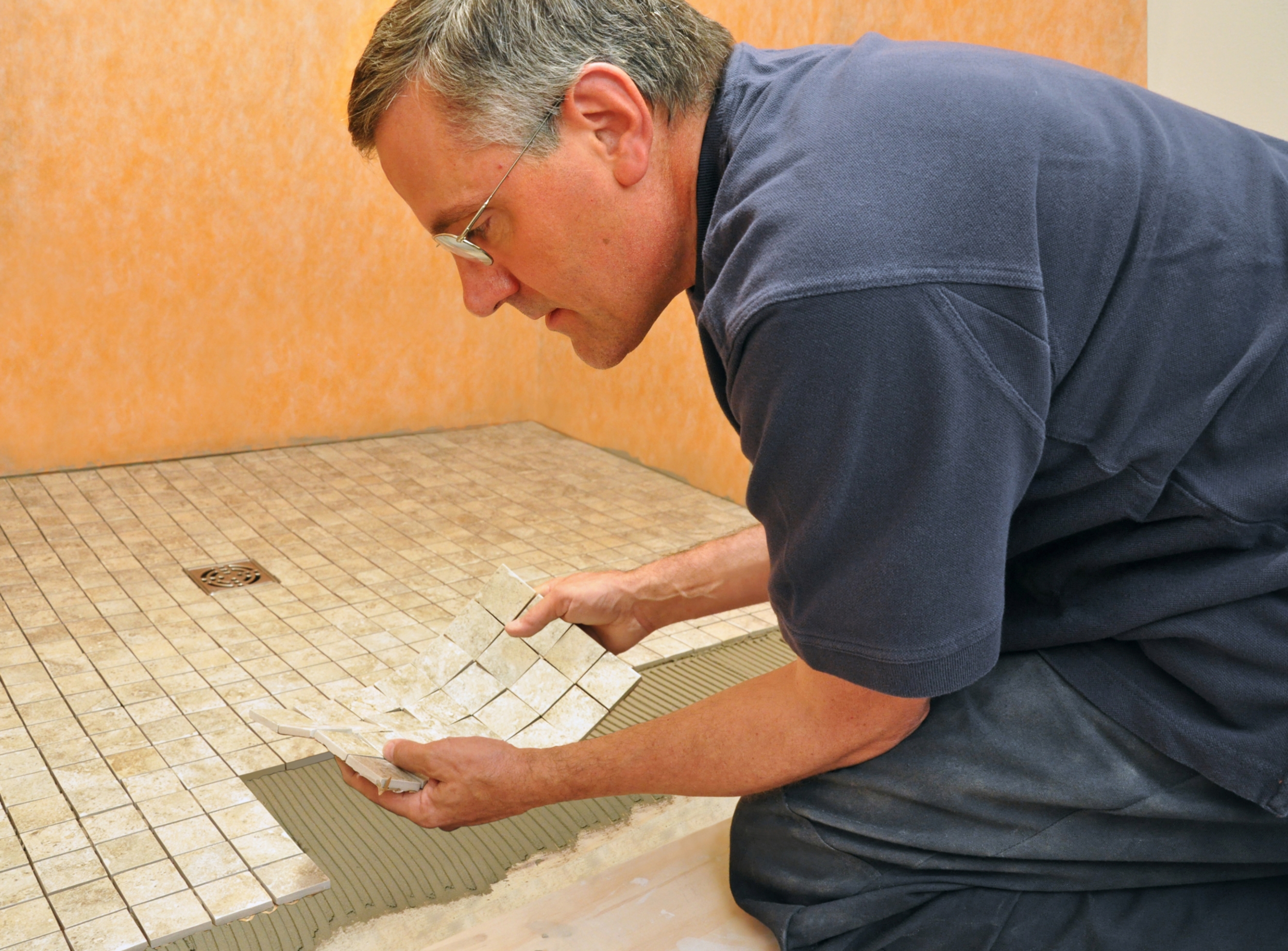
Photo by Christina Richards on Shutterstock
Cons
- Not so comfortable on bare feet
- Difficult to install even for experienced home contractors
- Can be slippery if not textured properly
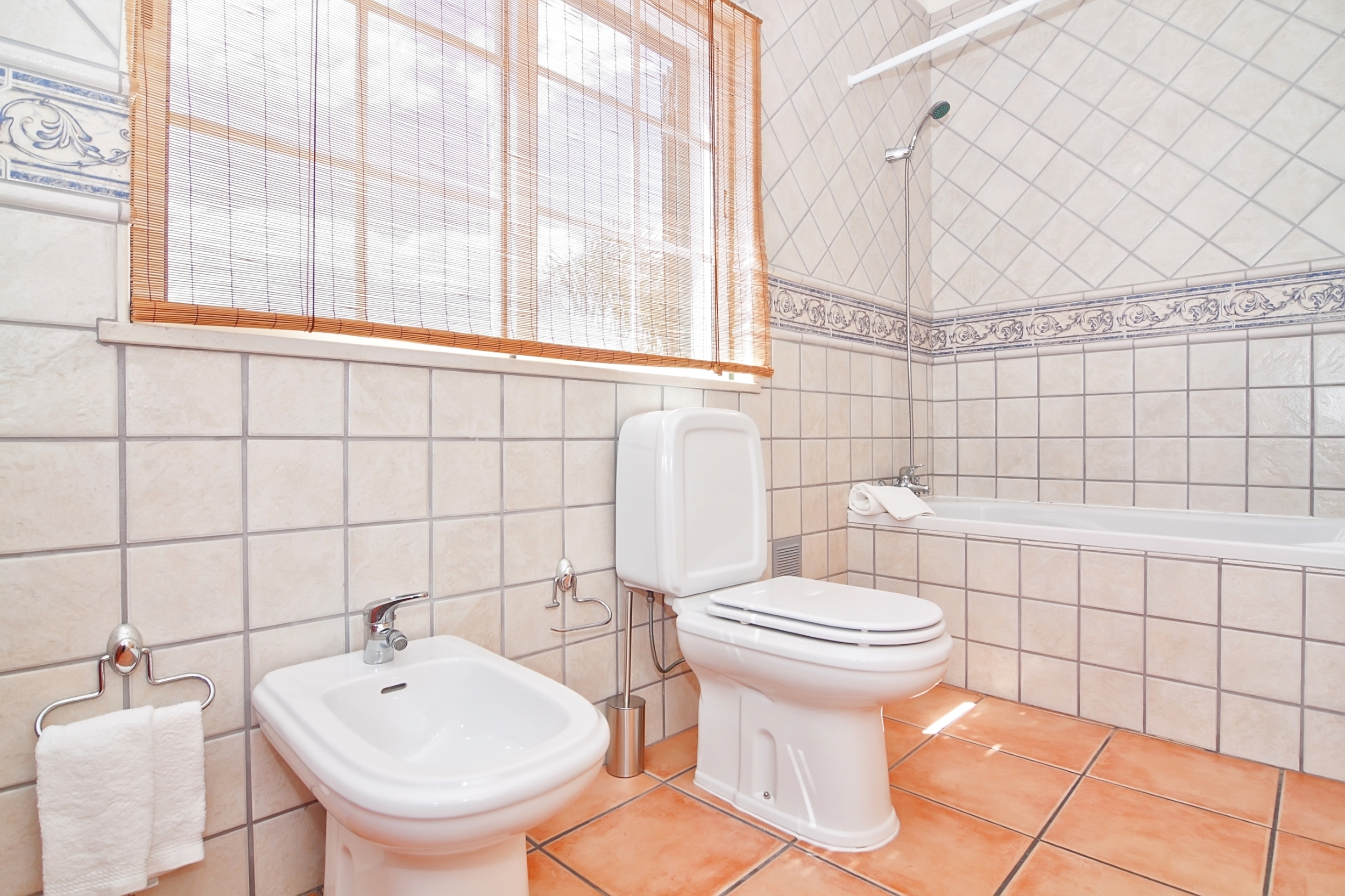
Photo by Serhiy Stakhnyk on Alamy
• Glass Tiles
Glass mosaic tile comes in the form of various tiny glass tiles of similar or different colors. It can give your bathroom a unique and modern look.
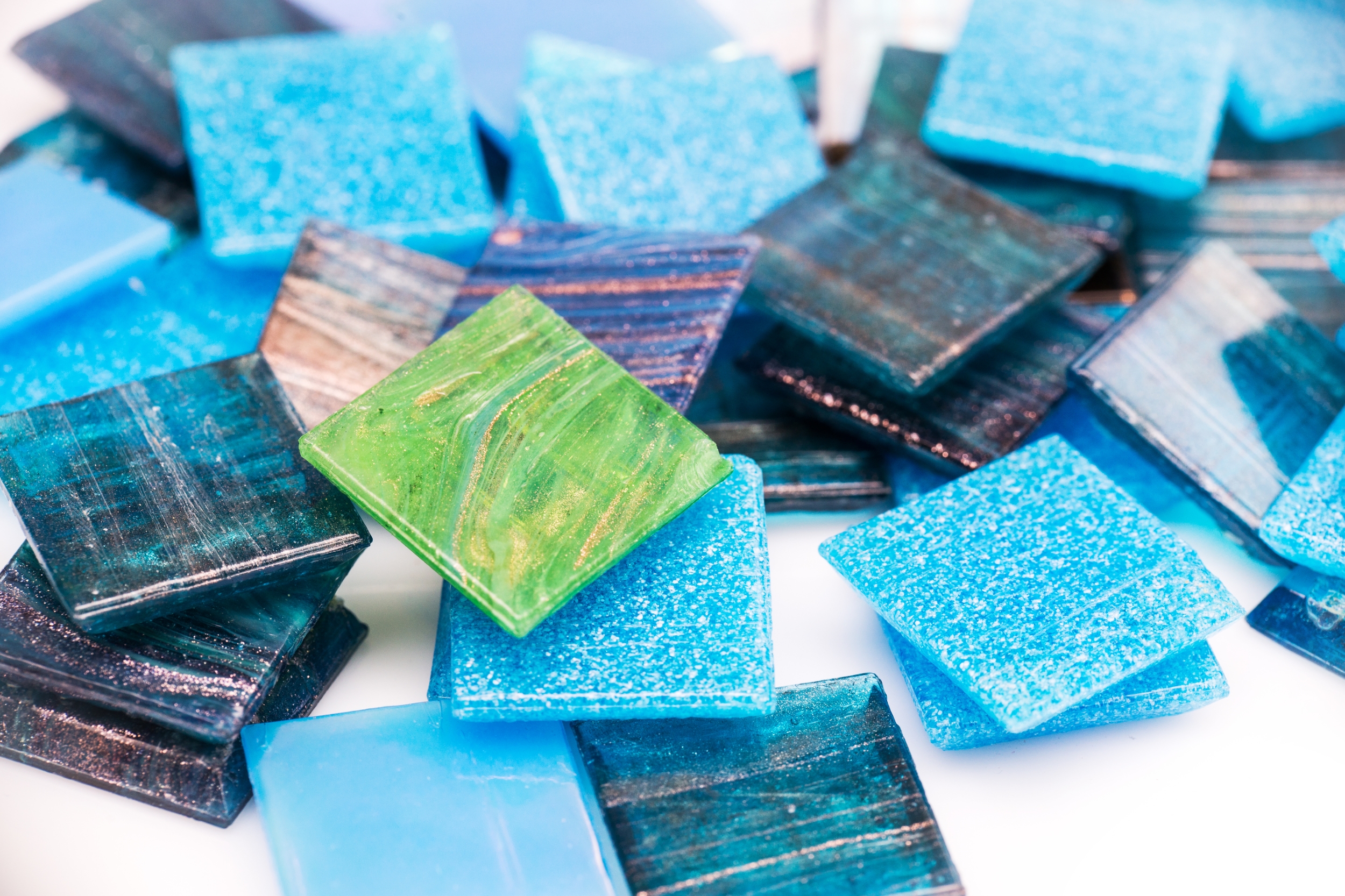
Photo by Delpixel on Shutterstock
Pros
- Arguably the most attractive tile material
- The small tiles are fixed with many grout joints making it very slip- resistant
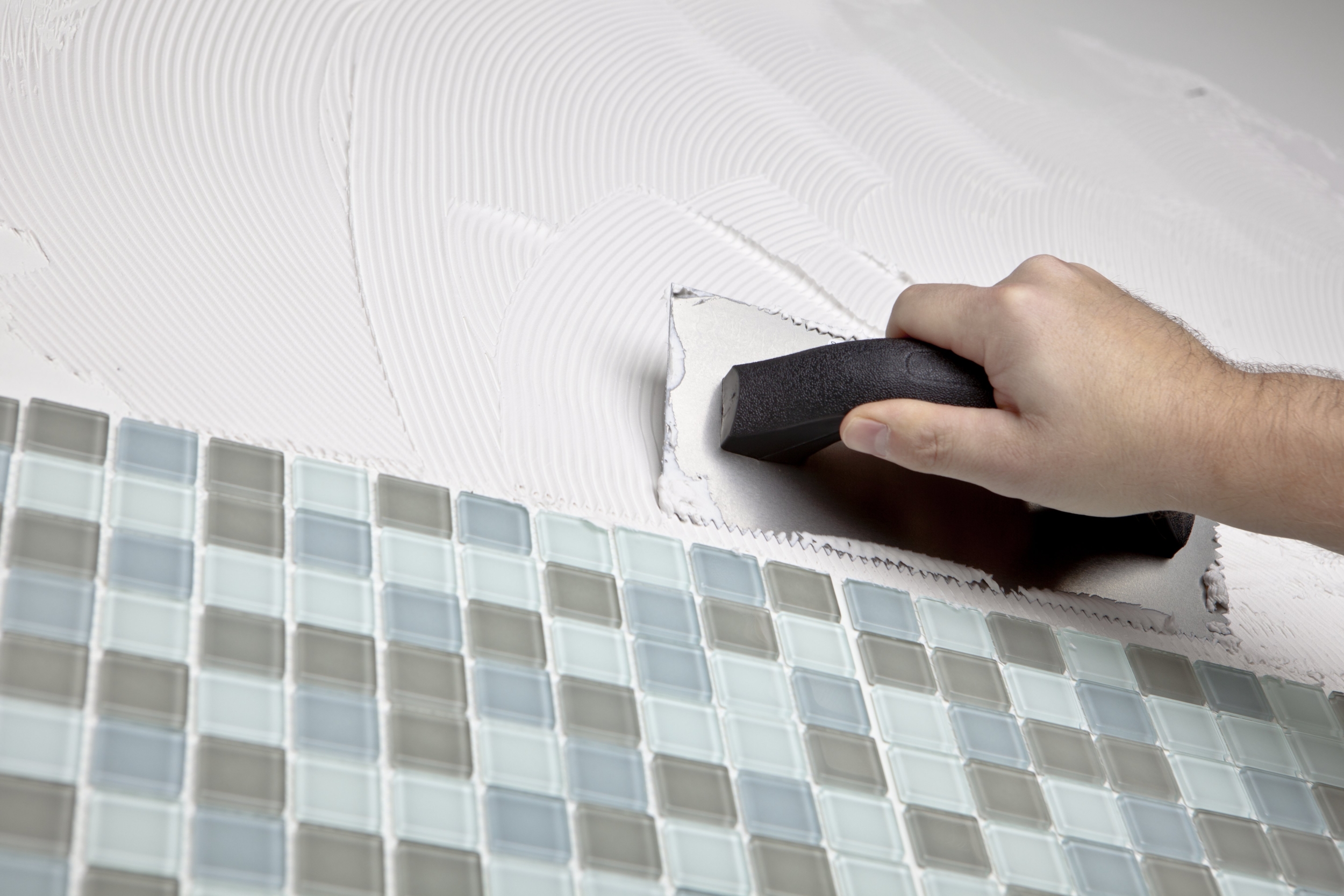
Photo by Derek Hatfield on Shutterstock
Cons
- Glass tiles are considered luxury items and are expensive. Some custom mural pieces can cost up to $150 per square foot
- Extremely difficult to install. It’s best to suppress your DIY urge for this one and hire a professional (not a general contractor) instead
- Not good for shower area
- Prone to scratches
• Marble Tile
Marble is a natural stone that can be cut to make tiles.
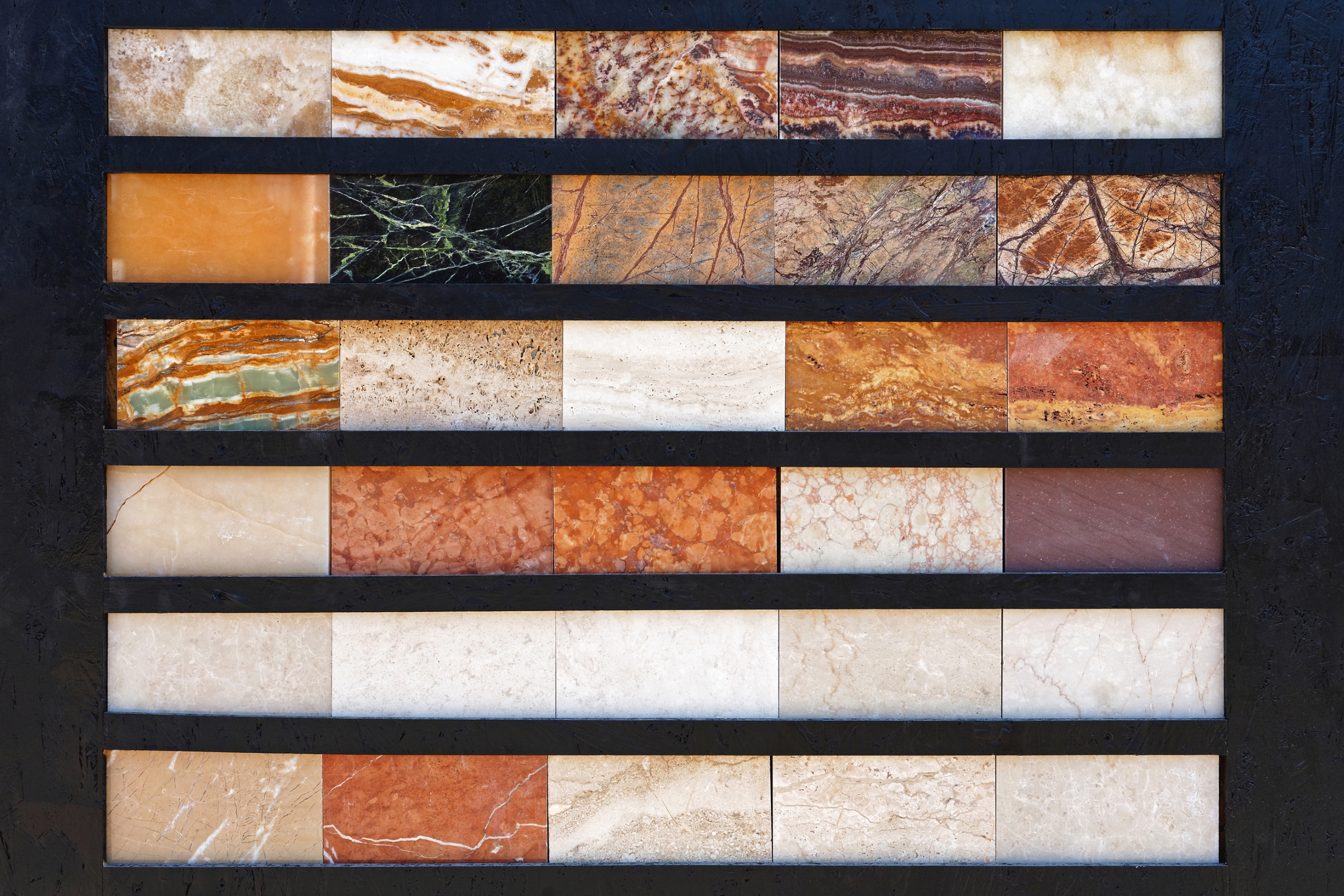
Photo by Marko Beric on Alamy
Pros
- Marble tiles are perhaps the only competition for glass when it comes to beauty. Marble’s beautiful patterns create a stunning look anywhere, including the bathroom floor
- Can work for the shower but must be sealed first
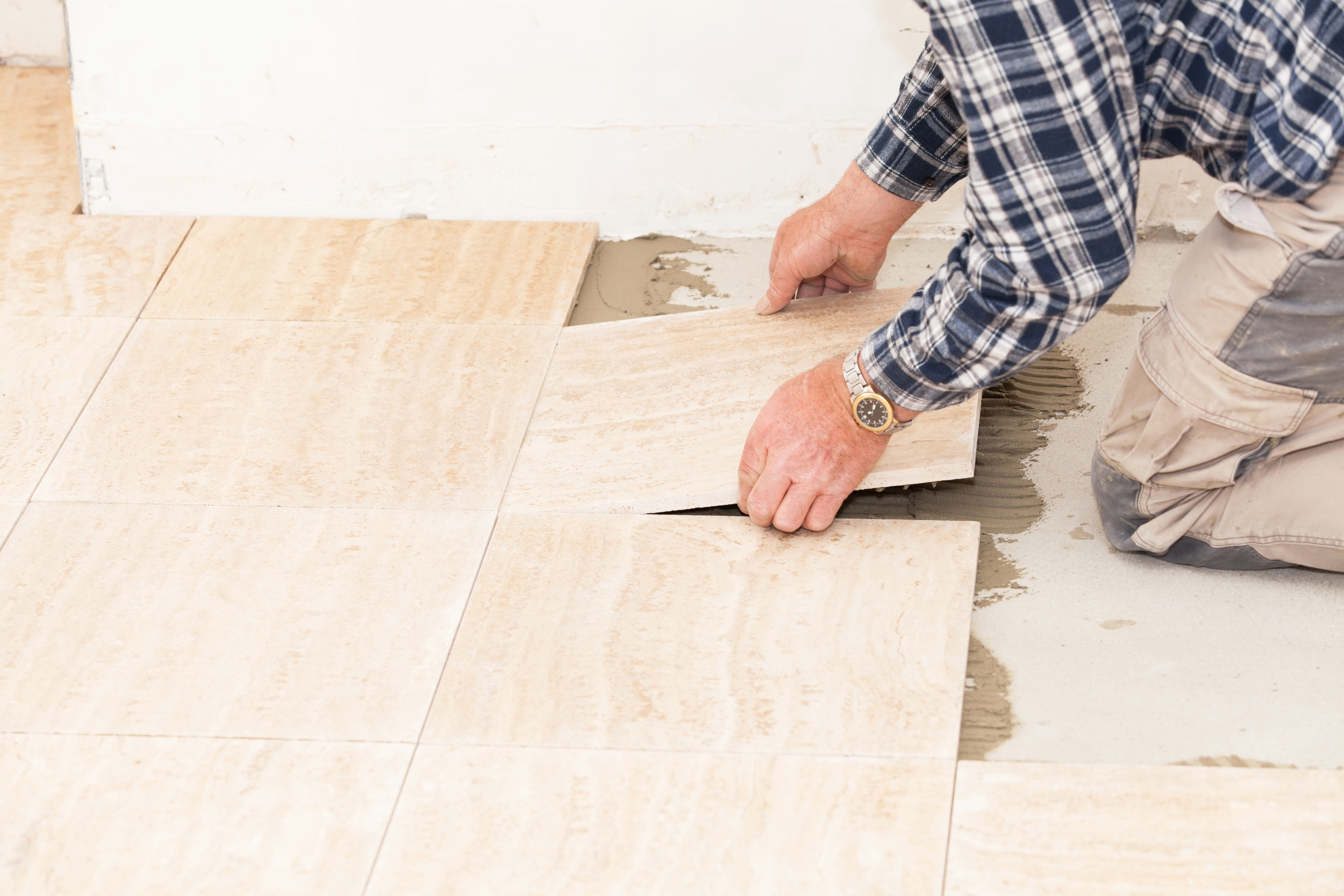
Photo by JP Chret on Shutterstock
Cons
- It can be more expensive than other materials
- It requires maintenance, needing regular cleaning with specific products designed for marble
- It can be prone to scratching
- Difficult to install
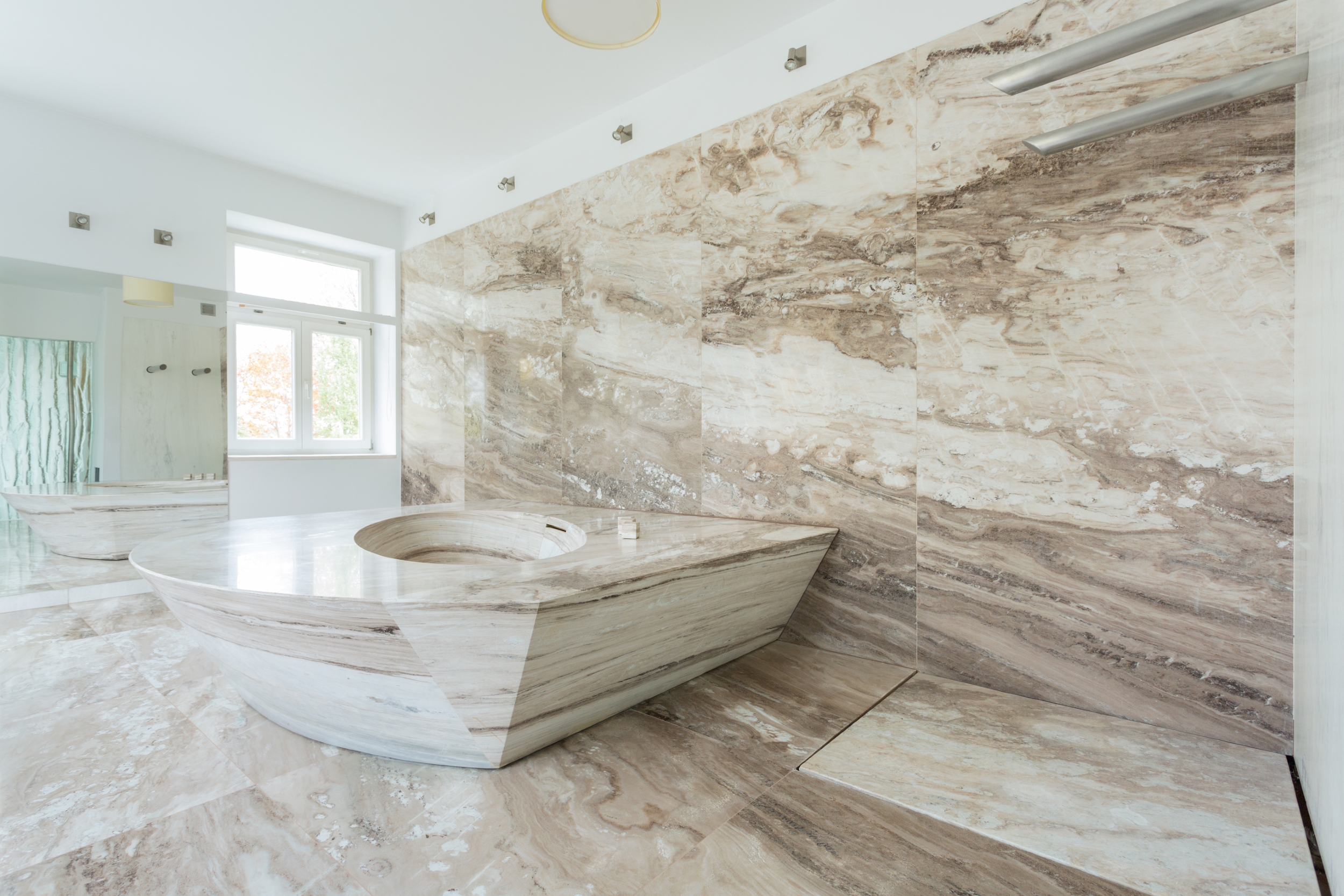
Photo by Photographee.eu on Adobe Stock
• Limestone Tile
Limestone is another natural stone that’s great for bathroom flooring.
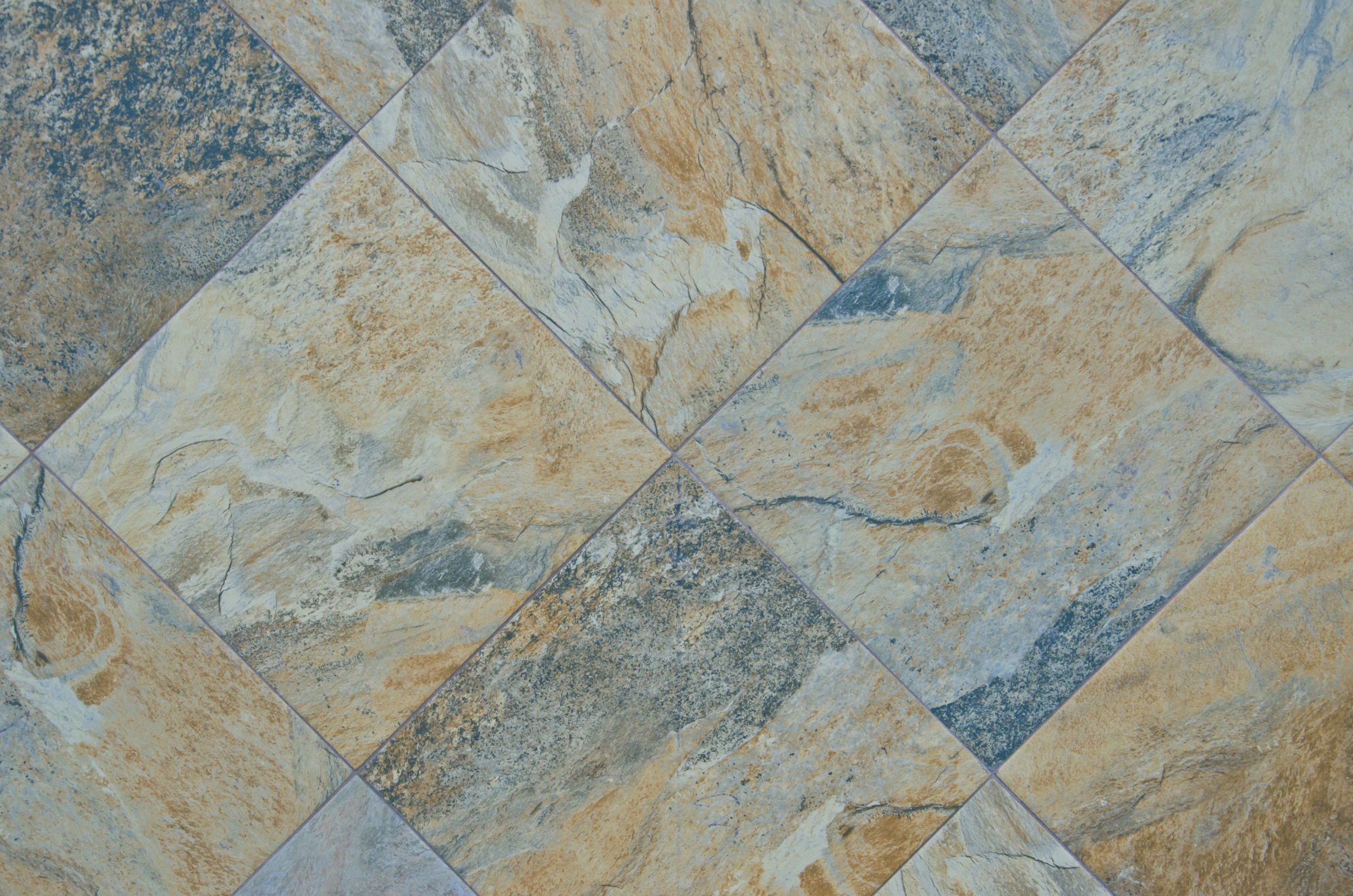
Photo by ERburenu on Dreamstime
Pros
- Like marble, limestone can make for a beautiful bathroom floor
Cons
- Needs the same level of maintenance as marble does, if not more
- Limestone is very porous, and if not sealed properly will get moldy due to moisture
- It also gets stained easily
- Can be pricey
• Pebble Mesh Tile
Pebble mesh tiles are made from pebble stones that have been collected and formed into tiles.
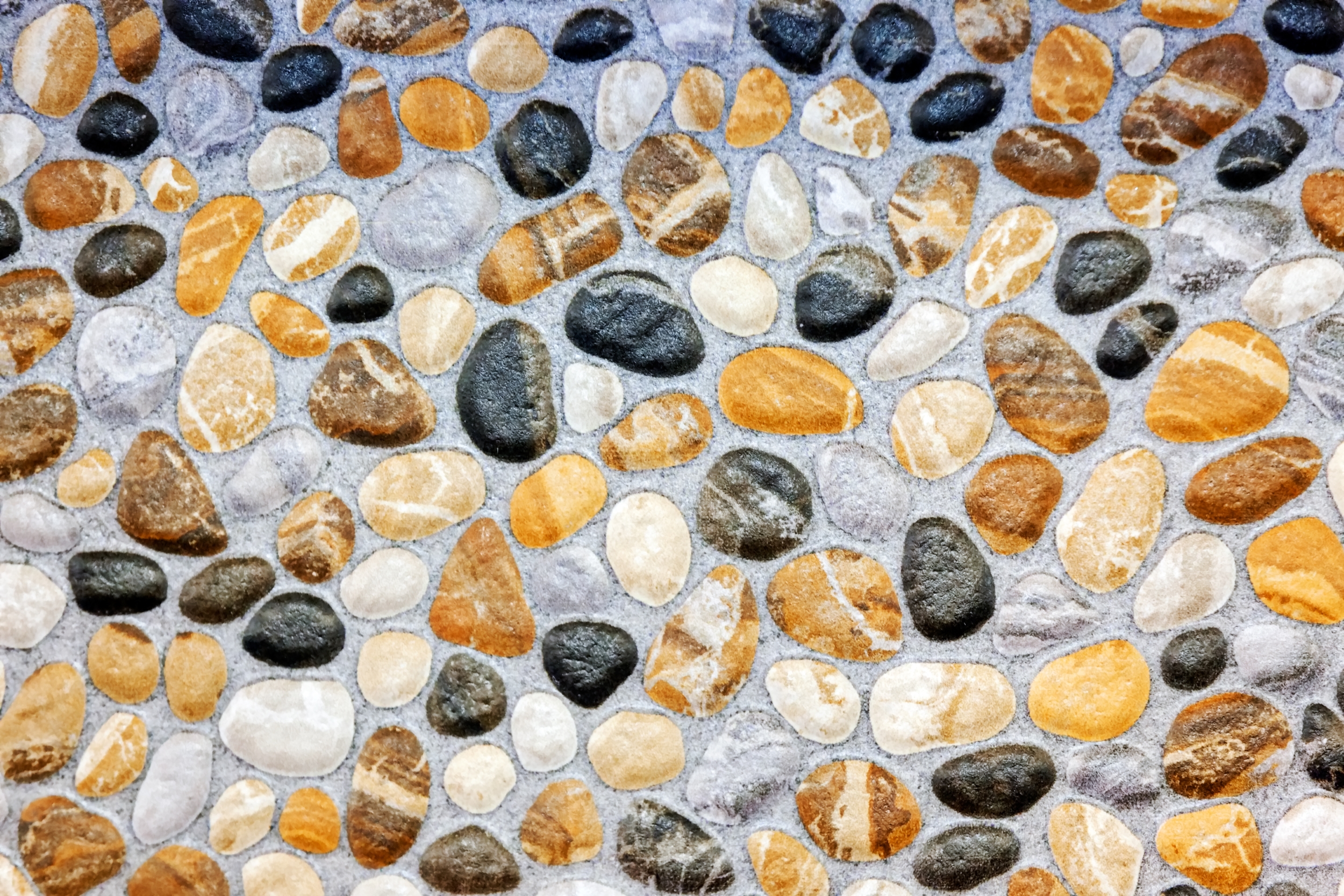
Photo by Vladimir Nenezic on Alamy
Pros
- Offers a natural and beautiful look for the bathroom
- Slip- resistant.
- Comfortable on feet
Cons
- Hard to clean because it’s a non- flat surface. Although flat shaved pebble tiles can solve this problem.
- Not a functional choice for the shower. But if used for one, needs to be dried properly after use and sealed regularly. Also opt for rounded pebbles rather than square ones for comfort.
2. Vinyl Flooring
Vinyl is a good alternative to tile. It’s made of polyvinyl chloride resins and plasticizers. It comes in the form of tiles, sheets, and planks. Sheet vinyl is the best choice to reduce water seepage.
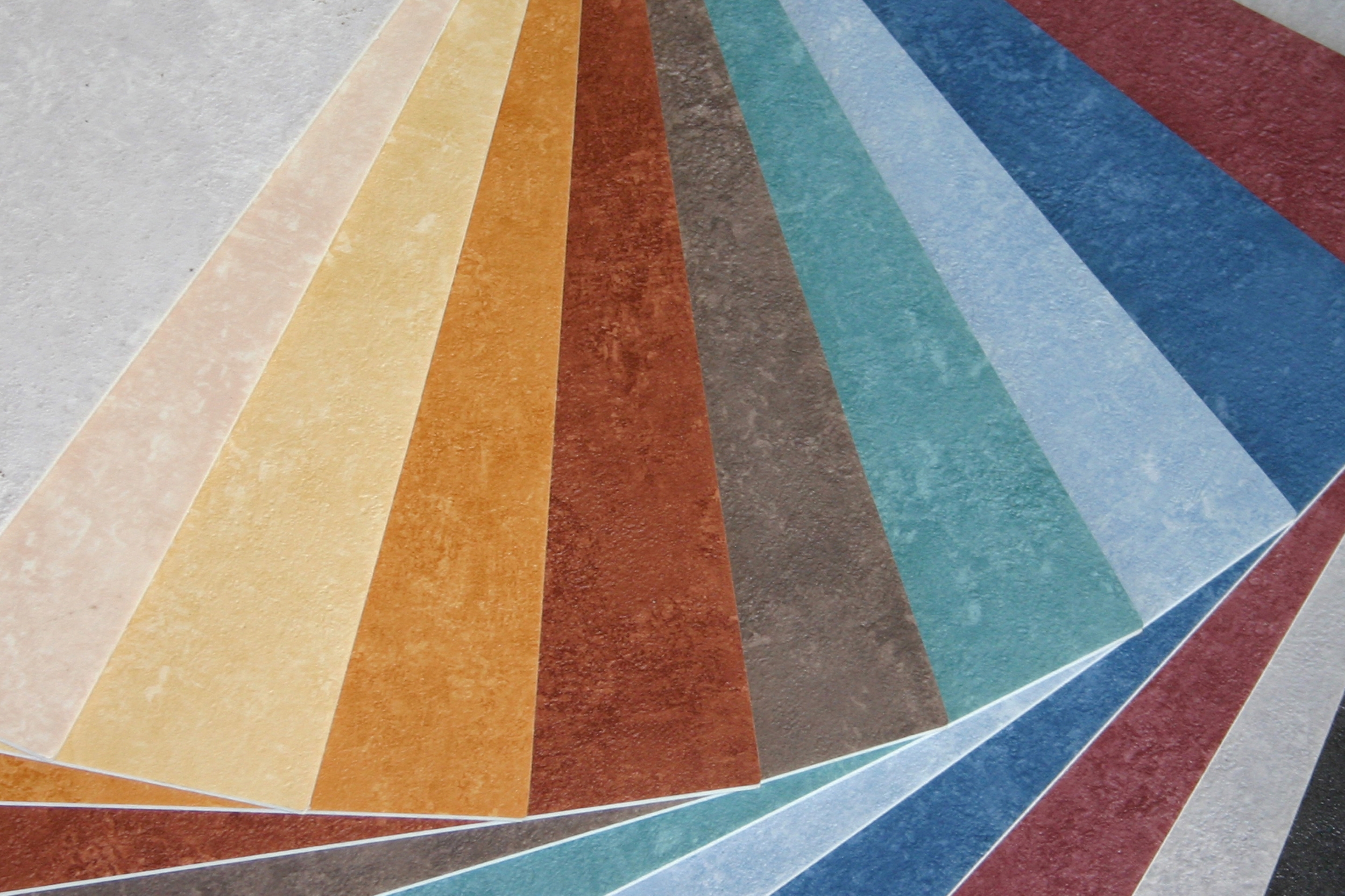
Photo by David Ford on Dreamstime
Pros
- Budget- friendly
- Foam backing makes vinyl softer which helps prevent slip-and-fall injuries
- Easy to install even on your own
- Durable, cleans easily and looks great
- Perfect for shower area and for children bathrooms
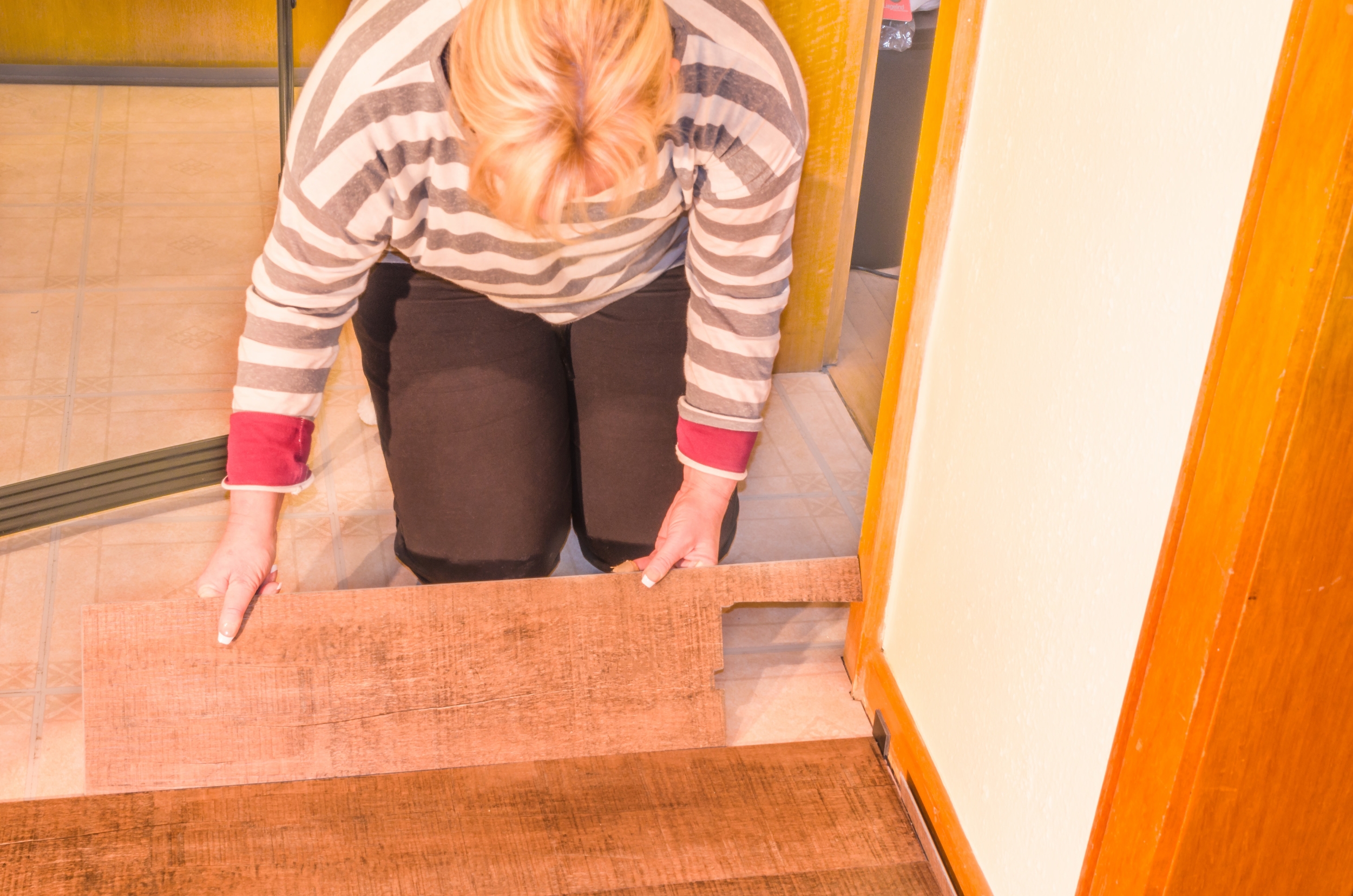
Photo by EyeEm on Alamy
Cons
- The only downside to vinyl is it’s not attractive as most tile materials
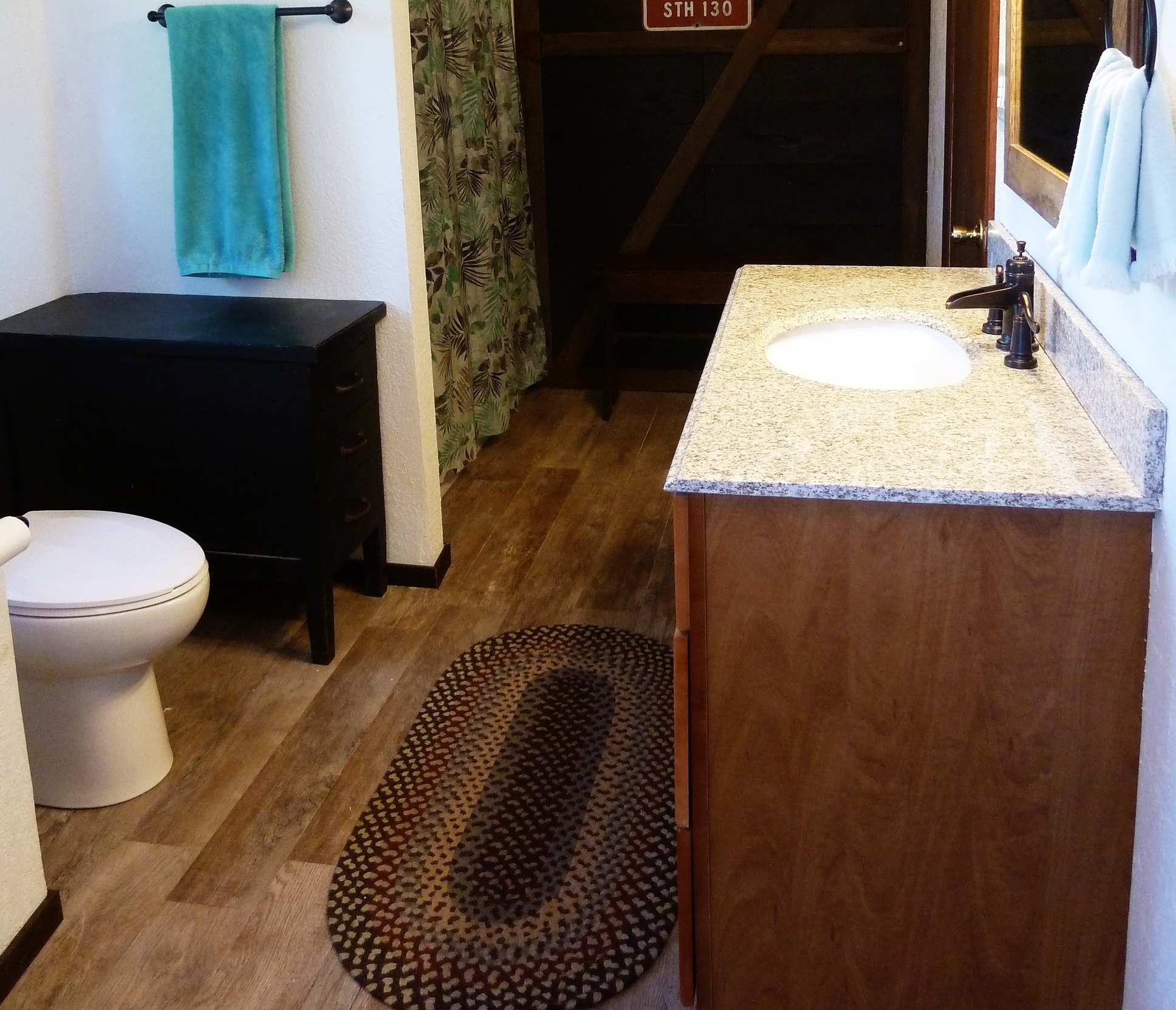
Photo by Dianne Sekas on Dreamstime
3. Wood Flooring
Wood is an exquisite material for home flooring. It not only looks great but feels great as well. For bathroom floors, however, wood has ups and downs, depending on the type of wood. Soft wood like pine and fir are not good options for a bathroom because they will absorb too much moisture. Hardwood like maple, oak, and teak are better, but can also be susceptible to water damage in the long run. Engineered wood is the best option because it has a plywood base which helps to prevent water absorption, but still retains a natural wood on the top layer. Wood should not be used in the shower.
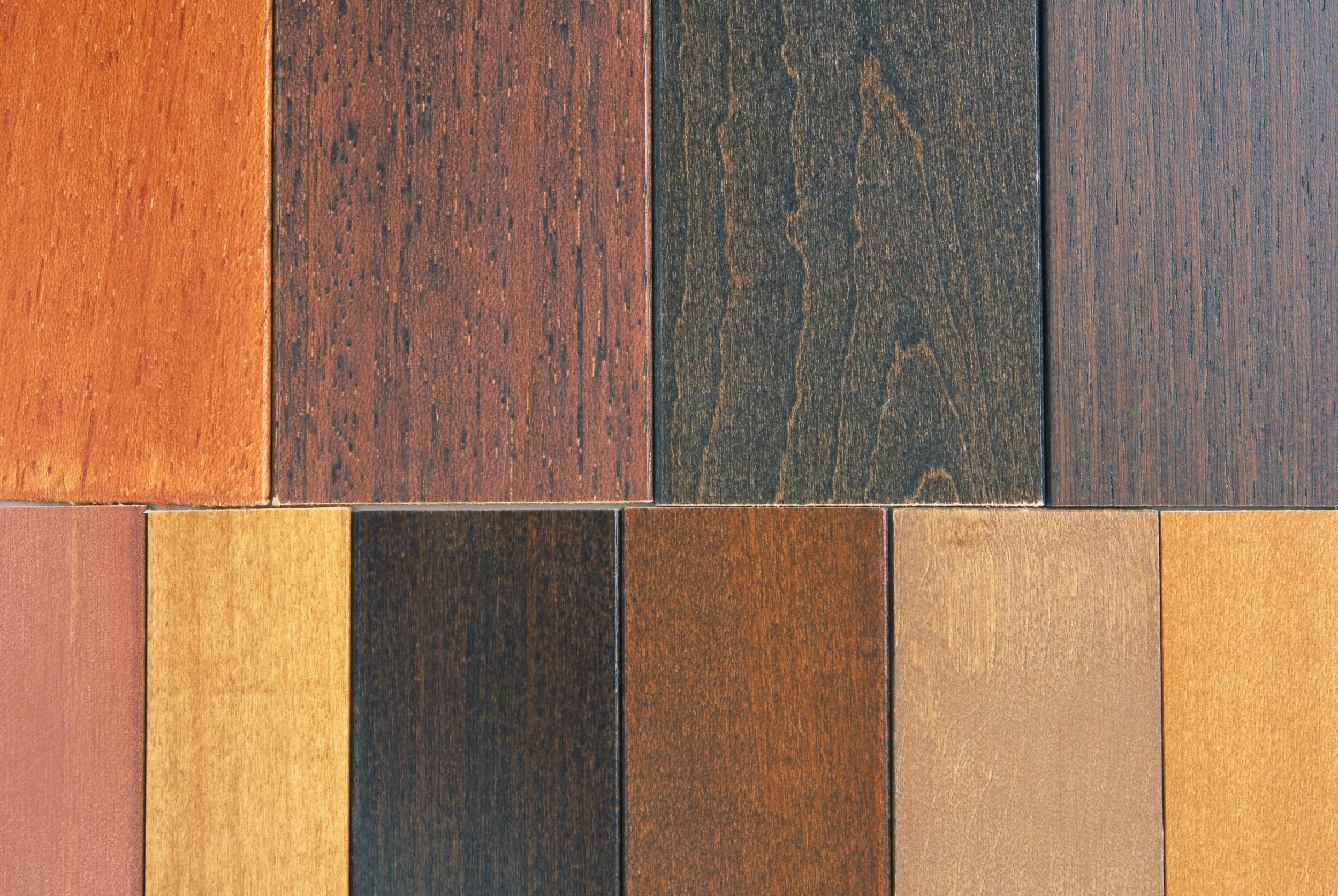
Photo by severija on Shutterstock
Pros
- Warm and comfortable
- Looks beautiful
Cons
- Without quality finish, a single water leak will damage the wood completely. Mold and mildew are also more likely to develop on wood flooring because of the high humidity in a bathroom
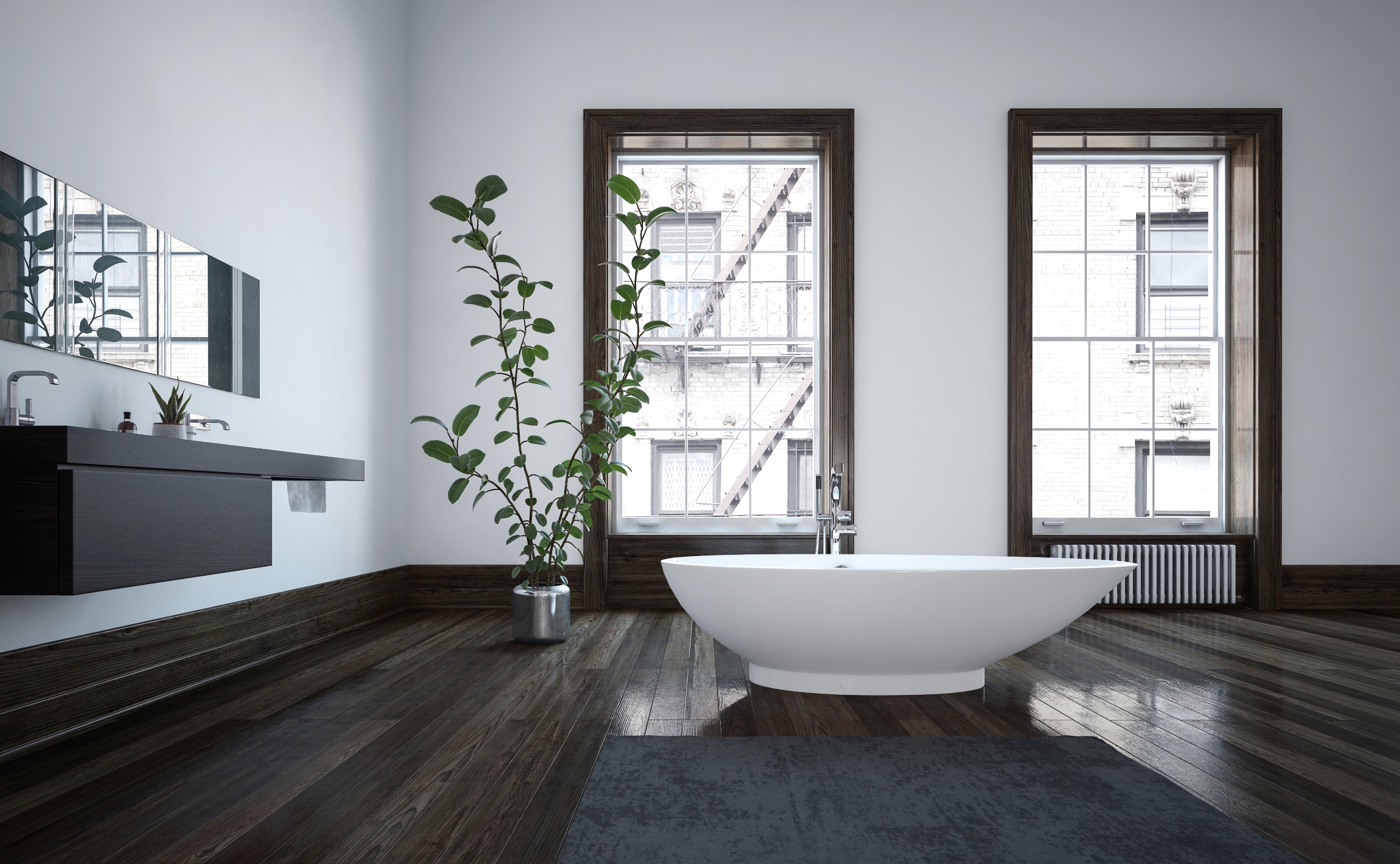
Photo by XtravaganT on Adobe Stock
4. Laminate Flooring
Laminate is a great alternative for wood. It’s made of a wood base covered with a photographic image of any material from oak to marble.
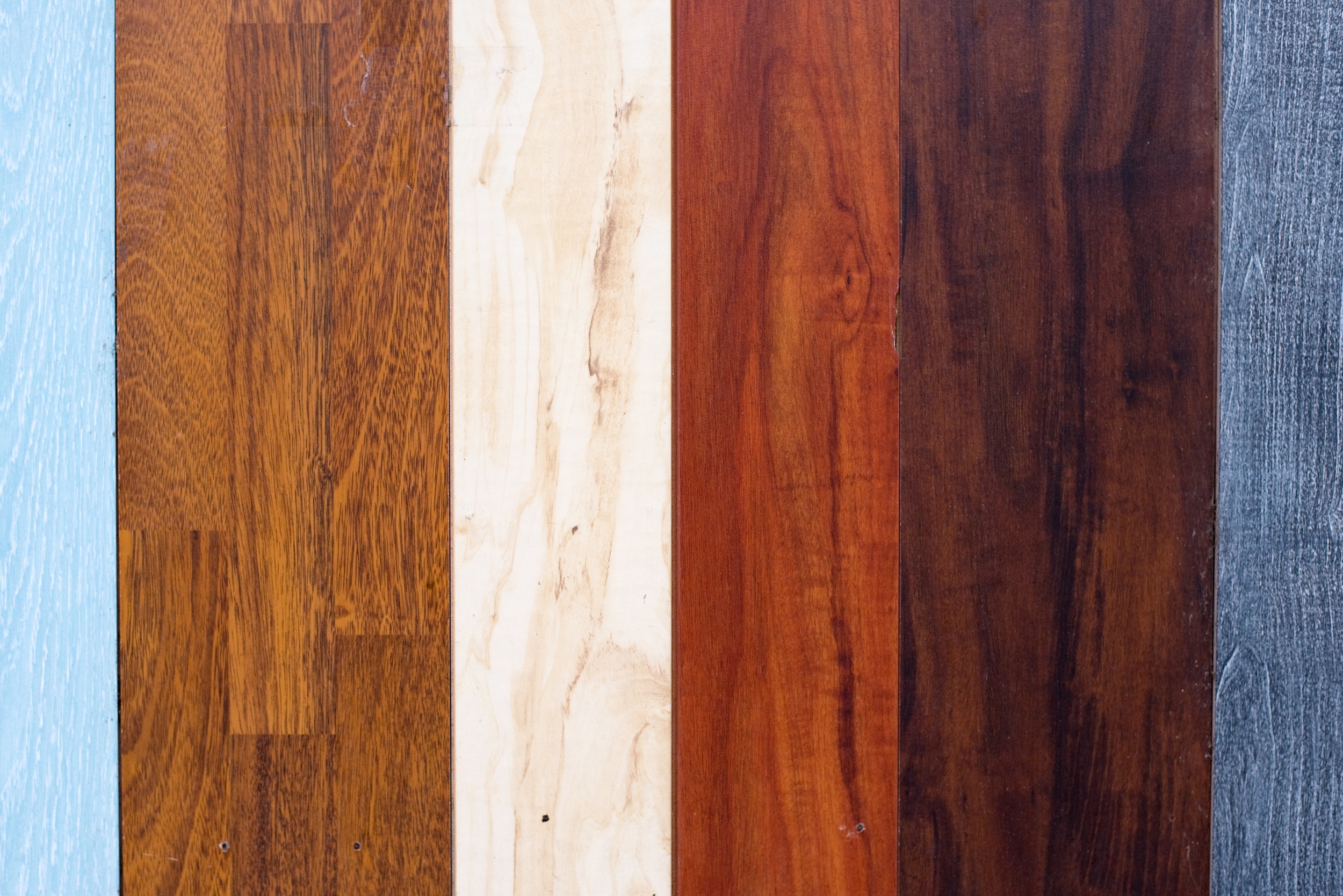
Photo by Igor Stevanovic on Alamy
Pros
- The planks of the wood base are tightly sealed making it difficult for moisture to penetrate.
- Does not scratch or stain easily
- More affordable than real wood
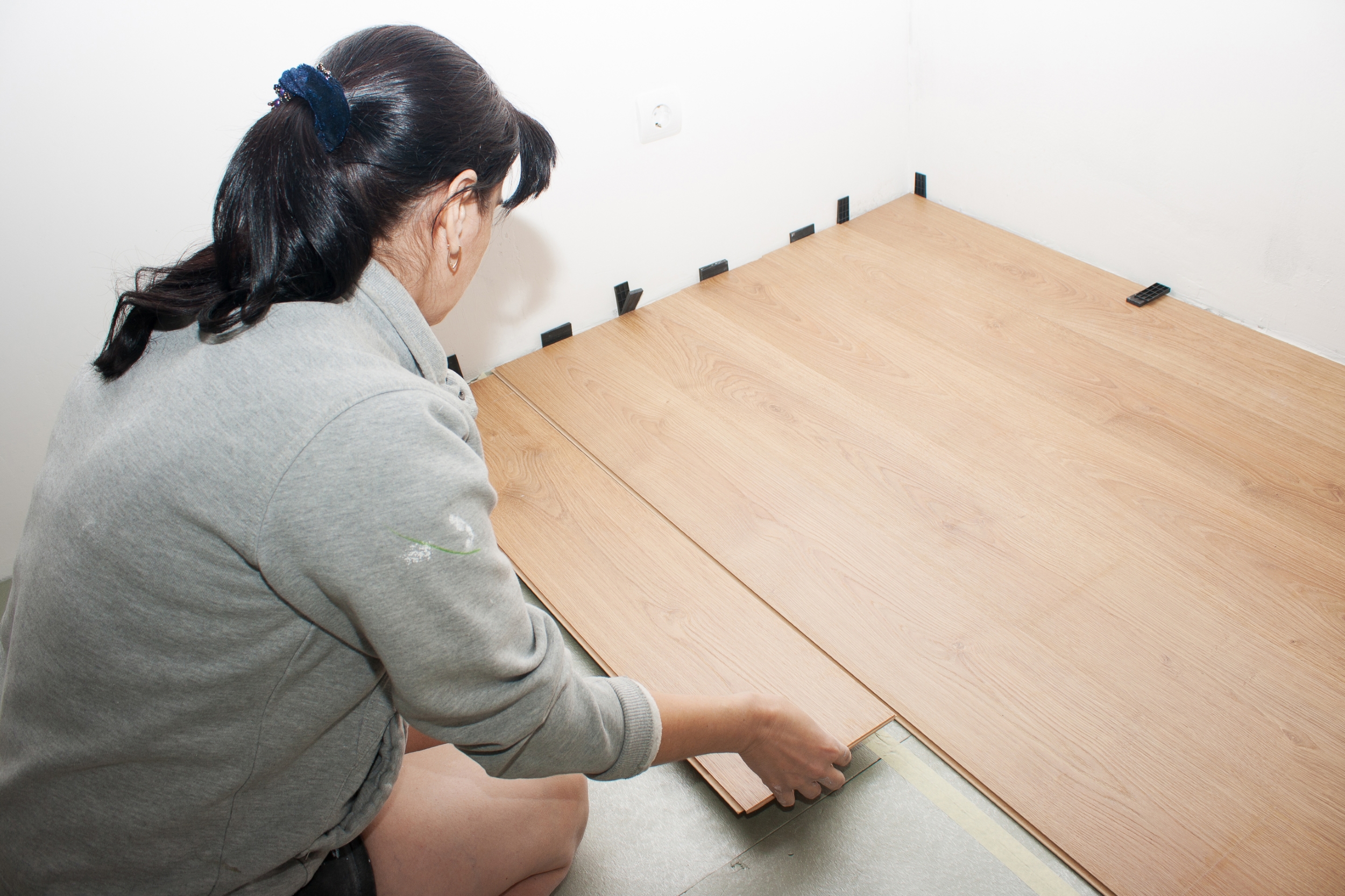
Photo by Radomir Tarasov on Alamy
Cons
- It still has a wood base, meaning contact with moisture in any way will cause extensive damage.
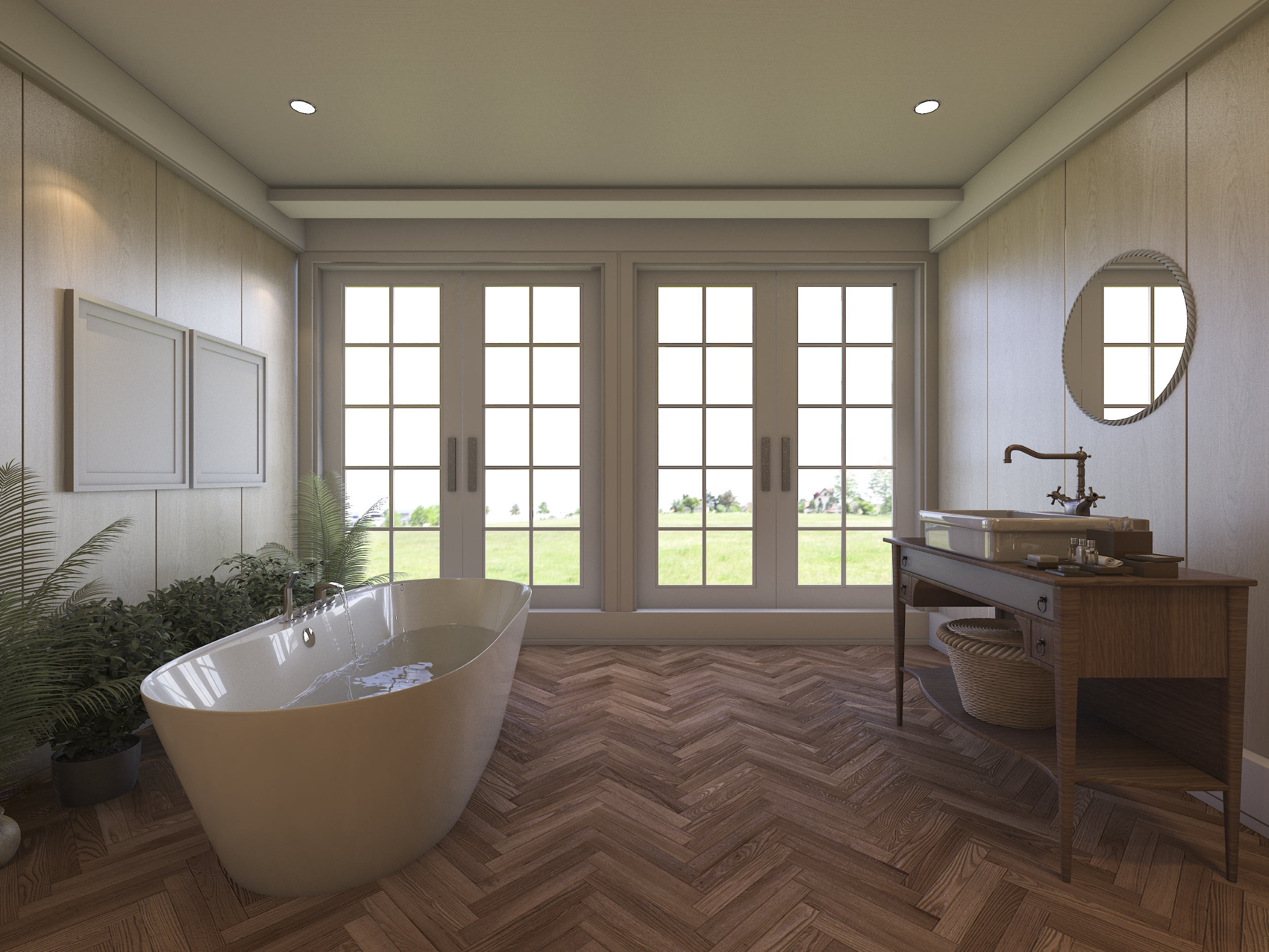
Photo by Dit Sangthongsuk on Alamy
5. Bamboo Flooring
Bamboo is another great alternative for wood.
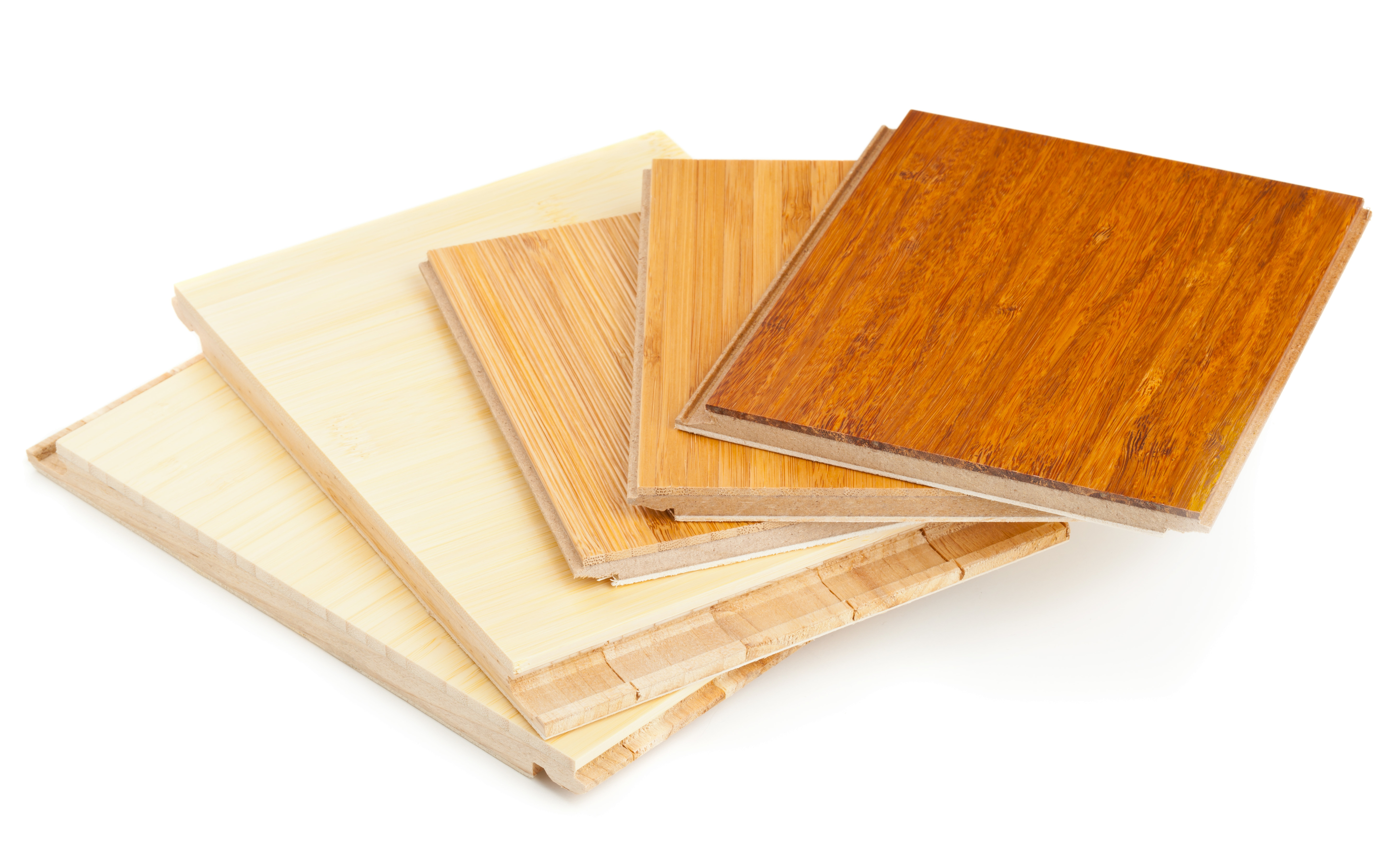
Photo by Shawn Hempel on Shutterstock
Pros
- Eco-friendly
-Cheaper than wood
- Bamboo planks are also durable, and easy to install.
Cons
-Like wood, bamboo flooring is also susceptible to water damage, but the good news is it can be replaced for half the cost of replacing wood.
Whatever type of bathroom floor you choose, proper maintenance will ensure that it retains its quality for a long time.




